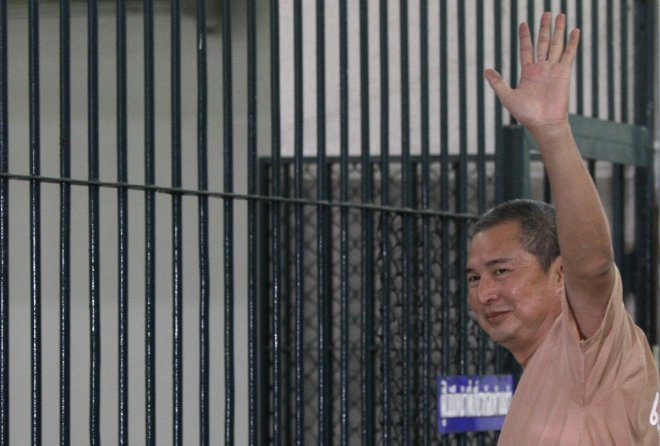
A week after revered King Bhumibol Adulyadej's death, Thailand has witnessed a spike in cases relating to royal defamation despite the ruling military junta's crackdown on voices of dissent.
Thai police said as many as 12 people are being investigated over new complaints of royal defamation found on social media posts since the king's death last Thursday. Four suspects are already in the police custody while arrest warrants have been issued for eight more.
"Their crime was posting messages or pictures which insulted the monarchy on social media," police spokesman Kitsana Pattanacharoen told Reuters.
The deeply divided Thai polity stands united in its reverence for the king, but the perception that the monarchy has favored the military junta in its power struggle with the elected governments in recent decades is quite strong.
After the king's death Prime Minister Prayuth Chan-ocha rushed to affirm the heir apparent, Prince Maha Vajiralongkorn, would assume the throne, trying to put to rest the nascent debate on the succession.
Vajiralongkorn does not command the same respect as Bhumibol but the junta leader gave no room for doubt over the sensitive succession issue.
The succession will be held after the cremation of Bhumibol, which is expected to take place in a year.
"There are a lot of preparations needed to be made before succession," junta spokesman Colonel Winthai said.
Spike in defamation cases
During the last two-and-a-half years after the latest coup, there were 70 cases of royal defamation in the country.
Thailand's harsh lese majeste law stipulates up to 15 years in prison for anyone convicted of defaming, insulting or threatening the king, queen, heir or regent.
The modern concept of lese majeste was adopted into Thailand's first criminal code in 1908. The law states that "whoever defames, insults or threatens the king, queen, heir-apparent, or regent shall be punished with imprisonment of three to 15 years."
Since the country descended into chaos following the ouster of democratically elected prime minister Tahksin Shinawatra in 2006, the number of royal defamation cases has risen sharply. The severity of punishments meted out to those convicted has also gone up.
The roots of the lese majeste law are traced back to the 19th Century when those convicted under this law were punished by beheading. There was also the practice of chopping off the ears, hands and feet of the convicts.
Timeline
In December 2015 Thailand prosecuted a man under lese majeste for posting images the king's favourite dog on Facebook. The 27-year-old factory worker was also charged under Article 112.
In the same month, US ambassador to Thailand Glyn Davies was investigated under the law after a speech at the Foreign Correspondents' Club in which he said: "We are also concerned by the lengthy and unprecedented prison sentences handed down by Thai military courts against civilians for violating the lese majeste law."
In August last year, two men were sentenced to 30 years and 28 years respectively for insulting the monarchy.
In November 2011, a 63-year-old man was sentenced to 20 years in prison over offensive text messages sent to the secretary of Prime Minister Abhisit Vejjajiva.
In 2008, Australian author Harry Nicolaides was given a three-year jail sentence for making defamatory references on the crown prince in his novel 'Verisimilitude', which has sold only seven copies.








